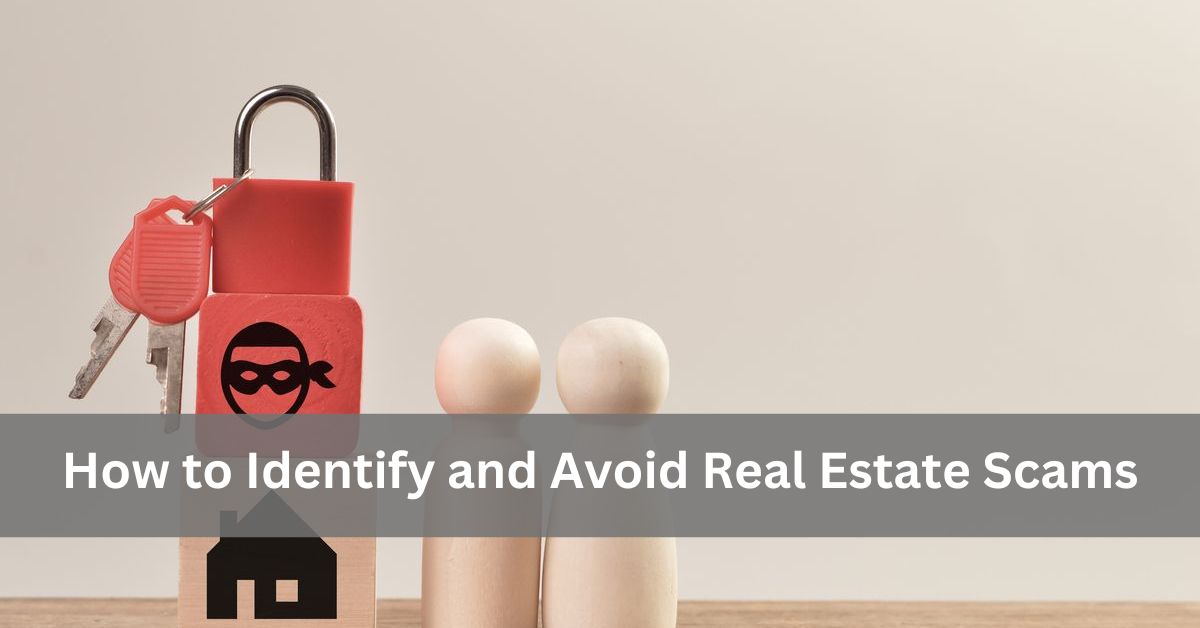Navigating the real estate market can be daunting, especially when dealing with potential scams. Whether you’re buying your first home or selling a property, understanding how to recognize and steer clear of real estate scams is crucial for protecting your investment and financial security. This article provides practical tips and insights to help you identify red flags and avoid falling victim to fraudulent schemes in real estate transactions.
Contents
1. Recognize Common Real Estate Scams
Real estate scams can take various forms, but some common ones include:
- Phishing Scams: Fraudulent emails or websites impersonating legitimate real estate agencies or agents, aiming to steal personal information or funds.
- Fake Rental Listings: Properties advertised at unrealistically low prices or with misleading descriptions to lure renters into paying deposits or rent upfront.
- Foreclosure Scams: Scammers posing as foreclosure specialists offering to save homeowners from foreclosure by charging upfront fees or transferring ownership under false promises.
- Title Fraud: Identity theft where fraudsters forge signatures to transfer property ownership or obtain loans against properties they don’t own.
2. Research and Verify Information
Before engaging in any real estate transaction, conduct thorough research and verification:
- Verify Property Ownership: Check public records or consult with a title company to confirm the property’s legal owner and status.
- Research Market Prices: Compare listing prices with similar properties in the area to identify any unusually low or high pricing.
- Validate Agents and Agencies: Verify credentials and licenses of real estate agents or agencies through state regulatory bodies or professional associations.
3. Inspect the Property and Documentation
When visiting properties or reviewing documents, pay attention to details that could signal potential scams:
- Physical Inspection: Visit the property in person to assess its condition and ensure it matches the description in listings or advertisements.
- Review Contracts and Agreements: Carefully read through all contracts, agreements, and disclosures, ensuring clarity on terms, conditions, and financial obligations.
4. Trust Your Instincts and Exercise Caution
Listen to your instincts and proceed with caution if something seems too good to be true:
- Be Skeptical of High-Pressure Tactics: Avoid rushed decisions or pressure to sign contracts or make payments without sufficient time for due diligence.
- Verify Payment Methods: Use secure payment methods for deposits or transactions, and avoid wiring funds or providing sensitive financial information without confirming legitimacy.
5. Seek Professional Guidance and Legal Advice
Consulting with real estate professionals and legal experts can provide additional protection and guidance:
- Work with Reputable Professionals: Choose established real estate agents, brokers, and attorneys with a proven track record and positive reputation.
- Legal Review: Have contracts and agreements reviewed by a qualified real estate attorney to ensure compliance with local laws and protections against potential scams.
Conclusion
Educating yourself on how to identify and avoid real estate scams is essential for safeguarding your investments and financial well-being. By staying informed, conducting thorough research, and exercising caution throughout the transaction process, you can minimize risks and make informed decisions with confidence. Remember, vigilance and due diligence are your best defenses against real estate scams.
Protect Your Real Estate Investments
If you suspect a real estate scam or need assistance navigating the market safely, contact [Your Company Name] for expert guidance and support. Our team is dedicated to helping you avoid pitfalls and achieve your real estate goals securely. Don’t let scams derail your plans—take proactive steps to protect yourself and your investments today.


